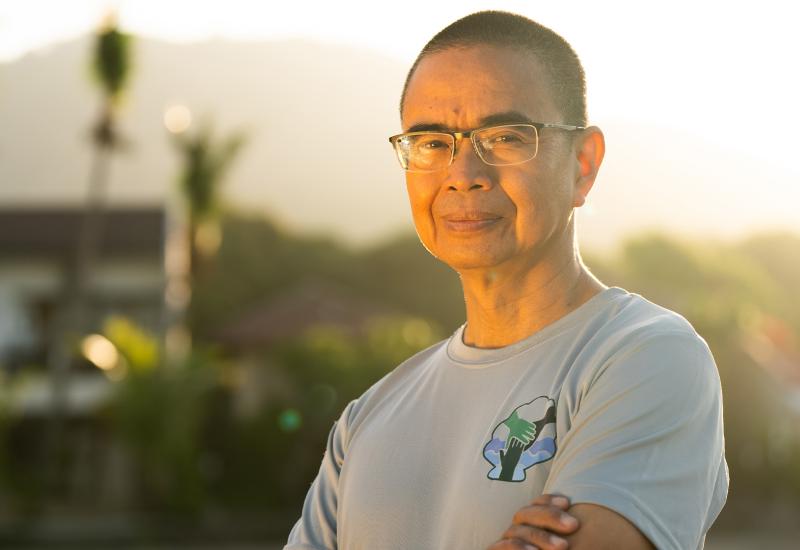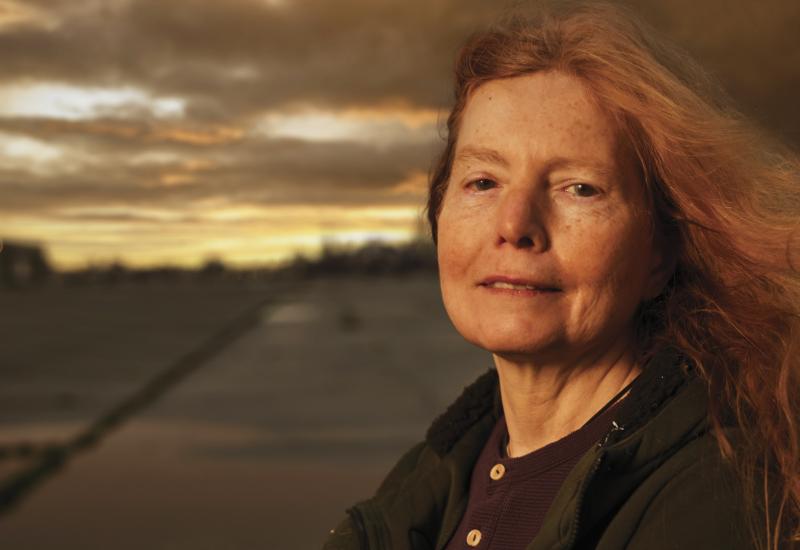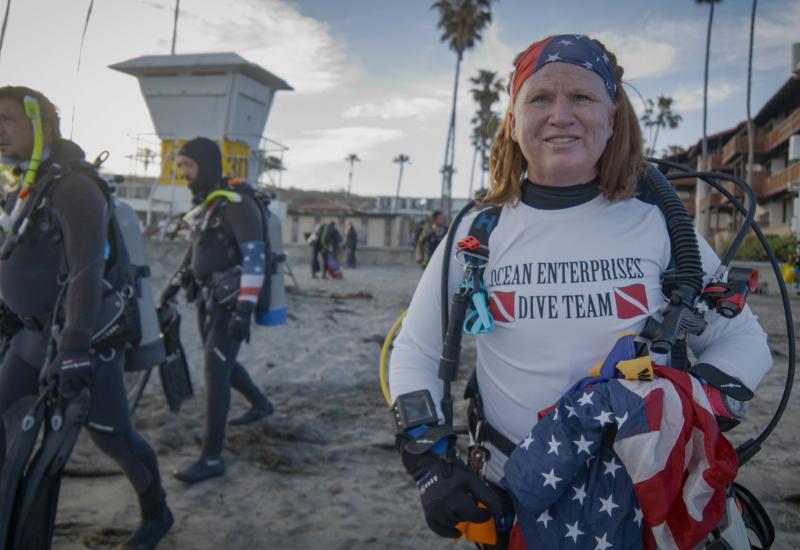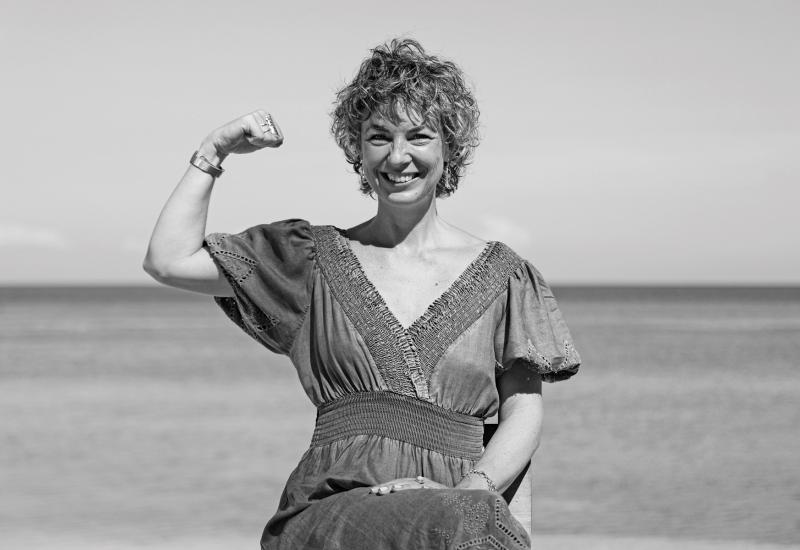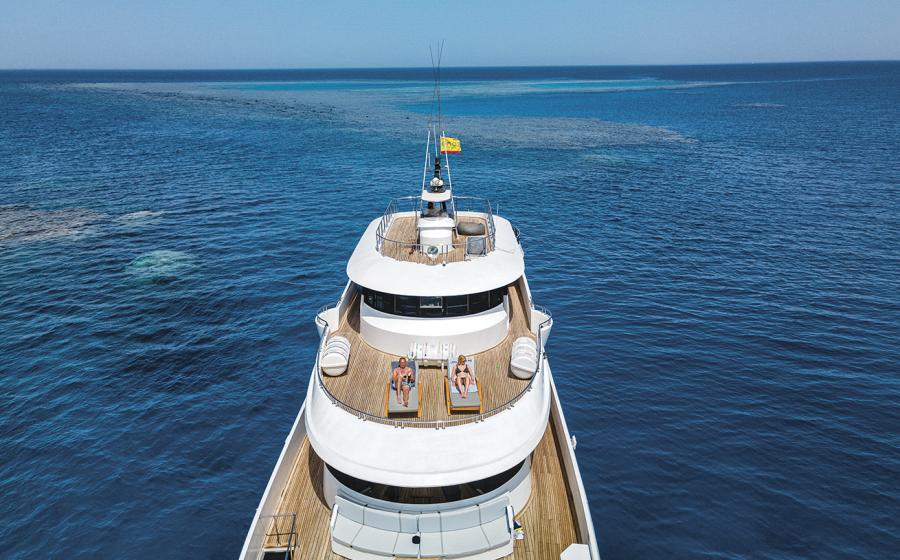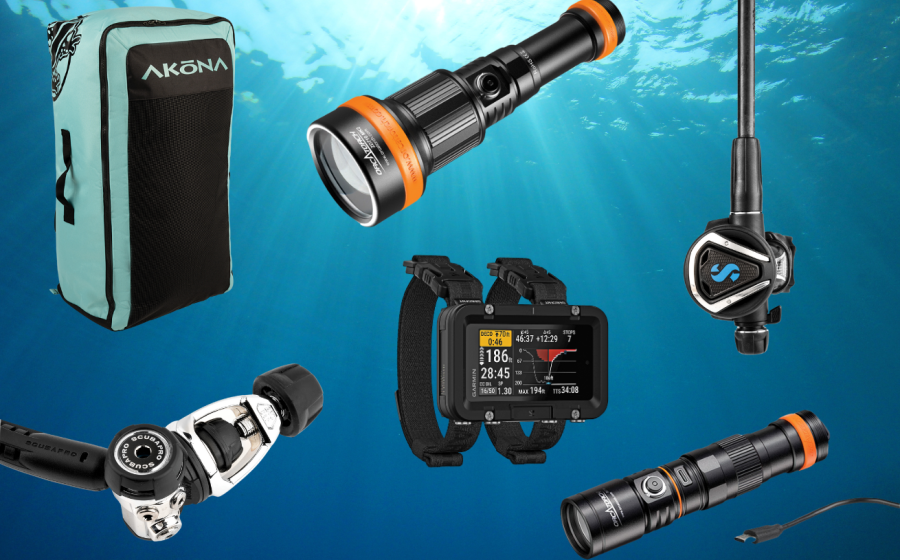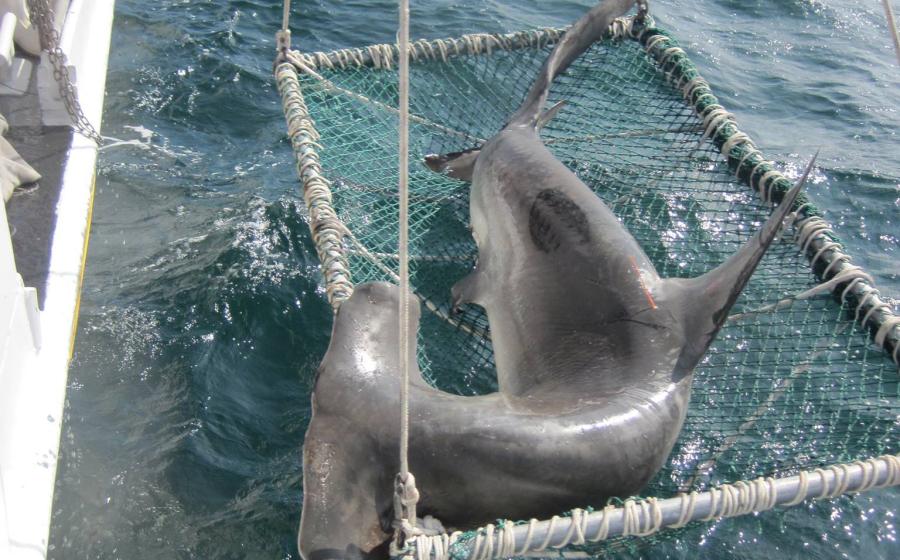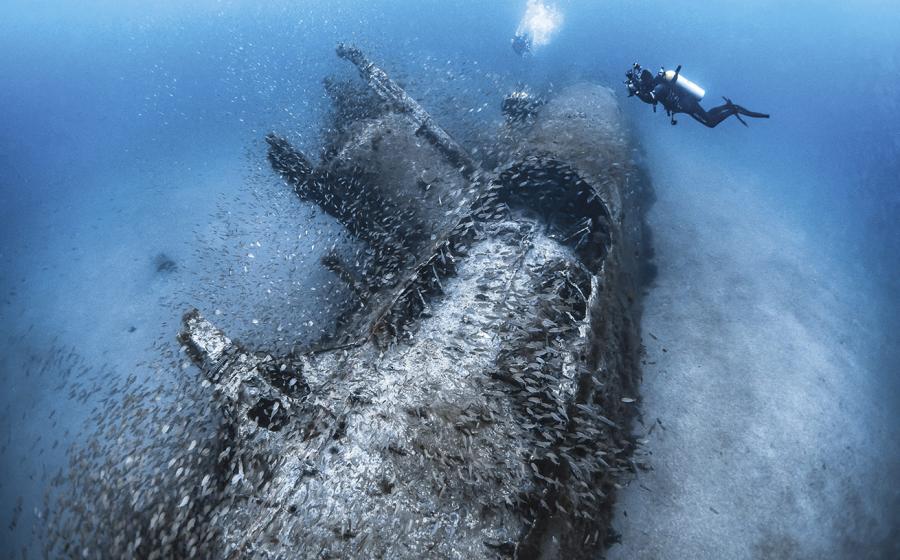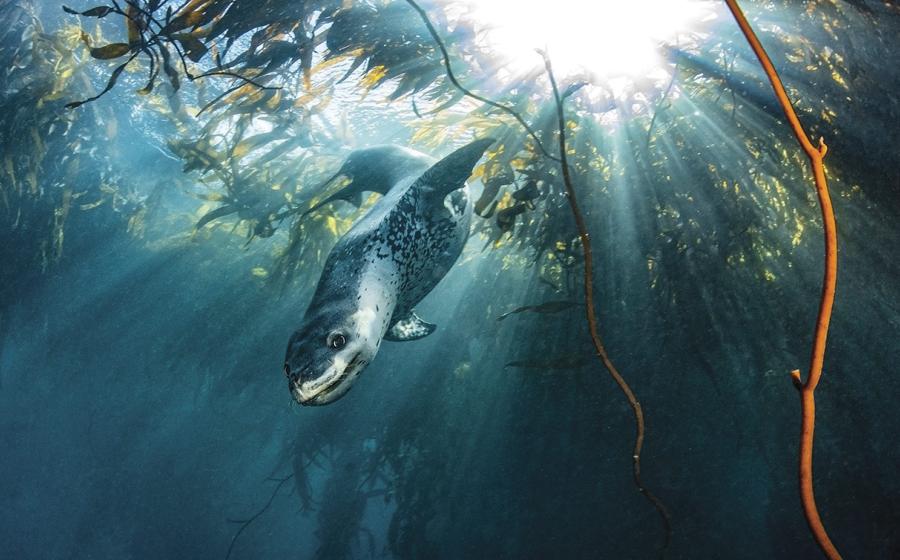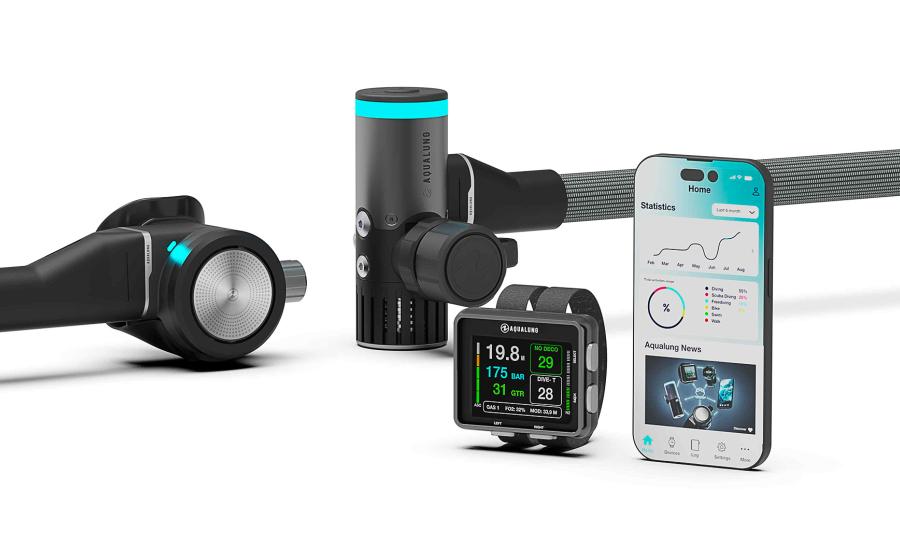Sri Lankan Scientist Asha de Vos Earns Sea Hero Honors
YEAR DIVE CERTIFIED: 2001
AGE WHEN CERTIFIED: 21
DIVE CERTIFICATION LEVEL: Advanced open water diver
WORDS TO LIVE BY: If we truly want to save our oceans, every coastline needs a local hero.
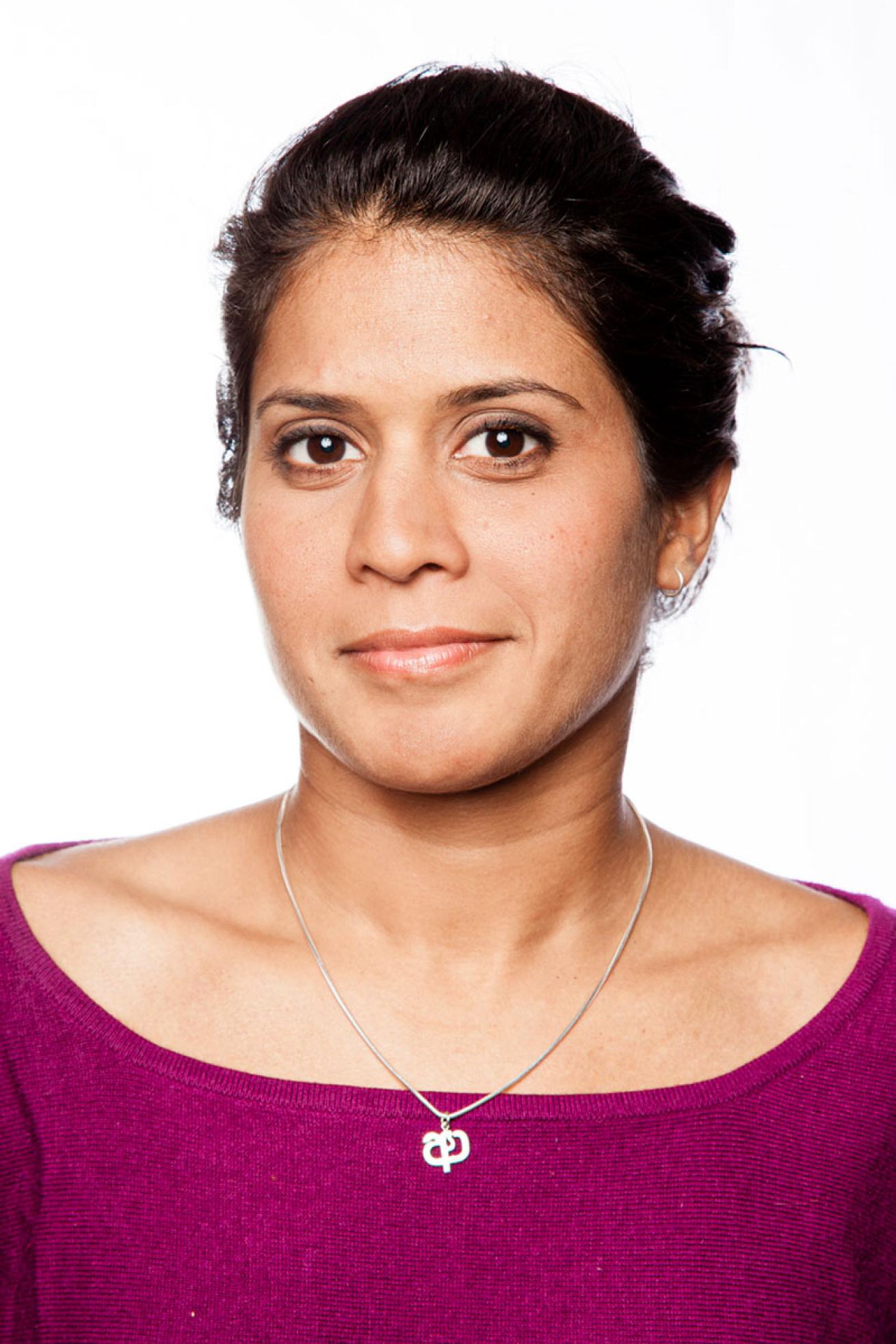
Courtesy Asha de Vos/OceanswellAsha de Vos
Sri Lankan scientist Asha de Vos, founder of her nation’s first marine conservation research and education nonprofit, discovered a nonmigratory population of blue whales, the planet’s largest animal. Threatened by ship strikes and entanglement, these whales benefit from de Vos’ decades of work in research that drives their protection particularly in relation to the mitigation of ship strikes. For her efforts to preserve Sri Lanka’s blue whales, and to train her country’s next generation of marine and citizen scientists, Asha de Vos is our November Sea Hero.
Q: Blue whales are the biggest creatures on Earth, yet it seems they are rarely encountered; not many divers have ever seen one. What are the most challenging issues threatening blue whales today, in Sri Lanka and around the globe, and why does it matter?
A: Blue whales are the largest animals to ever roam our planet but they are incredibly elusive. I think that that’s part of their magic—the fact that we get to experience only a tiny fraction of their incredible lives, and only when they are in nearshore waters more easily accessible to humans. But their elusiveness does not protect them from growing threats in our oceans. Blue whales in the waters around Sri Lanka and across the world face threats such as ship-strike, where they get hit and killed by ships; entanglement in fishing gear; and harassment by boats, particularly those belonging to the whale-watching industry. While these threats are visible, other less-visible threats such as pollution also impact the lives of these giants, particularly acoustic pollution.
Regardless of the threat, it’s important that we work towards their conservation because, as with every species on this planet, they have an important role to play. Whales are considered ecosystem engineers because their presence has a huge impact on everything around them. Their poop is the fertilizer to our oceans, the fertilizer for phytoplankton—microscopic plants that combine those nutrients with sunshine to produce oxygen. More than half the oxygen we breathe is produced by ocean plants, so we should be mindful and thankful to whales whose poop fertilizes at least a portion of that. Their carcasses also provide food for species at various depths, most importantly at the deepest points, where food and light are scarce. As these carcasses, called whale falls, sink, they also trap excess carbon from the atmosphere and transfer it to the depths of the oceans, the greatest carbon sink on this planet. This helps to buffer us from even worse impacts of climate change—another reason to be grateful to whales.
Q: You have spoken about the problem of “colonial science,” which can undercut local initiatives. Why is this a danger to conservation?
A: Colonial science, the conservation model where researchers from the developed world come to countries like Sri Lanka, do research and leave without any investment in human capacity or infrastructure, creates a dependency on external expertise and cripples local conservation efforts. Why? Because the work is driven by the outsiders’ assumptions, motives and personal needs, leading to an unfavorable power imbalance between those from outside and those on the ground. Fundamentally, working anywhere outside your own home is not a right, but a privilege and it should be treated as such. It is important that the partnership is equal and inclusive, that the work is driven by local need, that it is led by those on the ground with the support of those from outside. It should be designed to solve problems, not to enhance the curriculum vitae of those scientists. There should be opportunity for mutual sharing of experiences and expertise because everyone has something to contribute. This current pandemic has further highlighted the need for doing away with colonial science as researchers lament gaps in their datasets because they are unable to travel to their study sites. This would never have been the case if projects were designed to ensure everyone had the capacity to participate, make decisions and do the work on the ground.
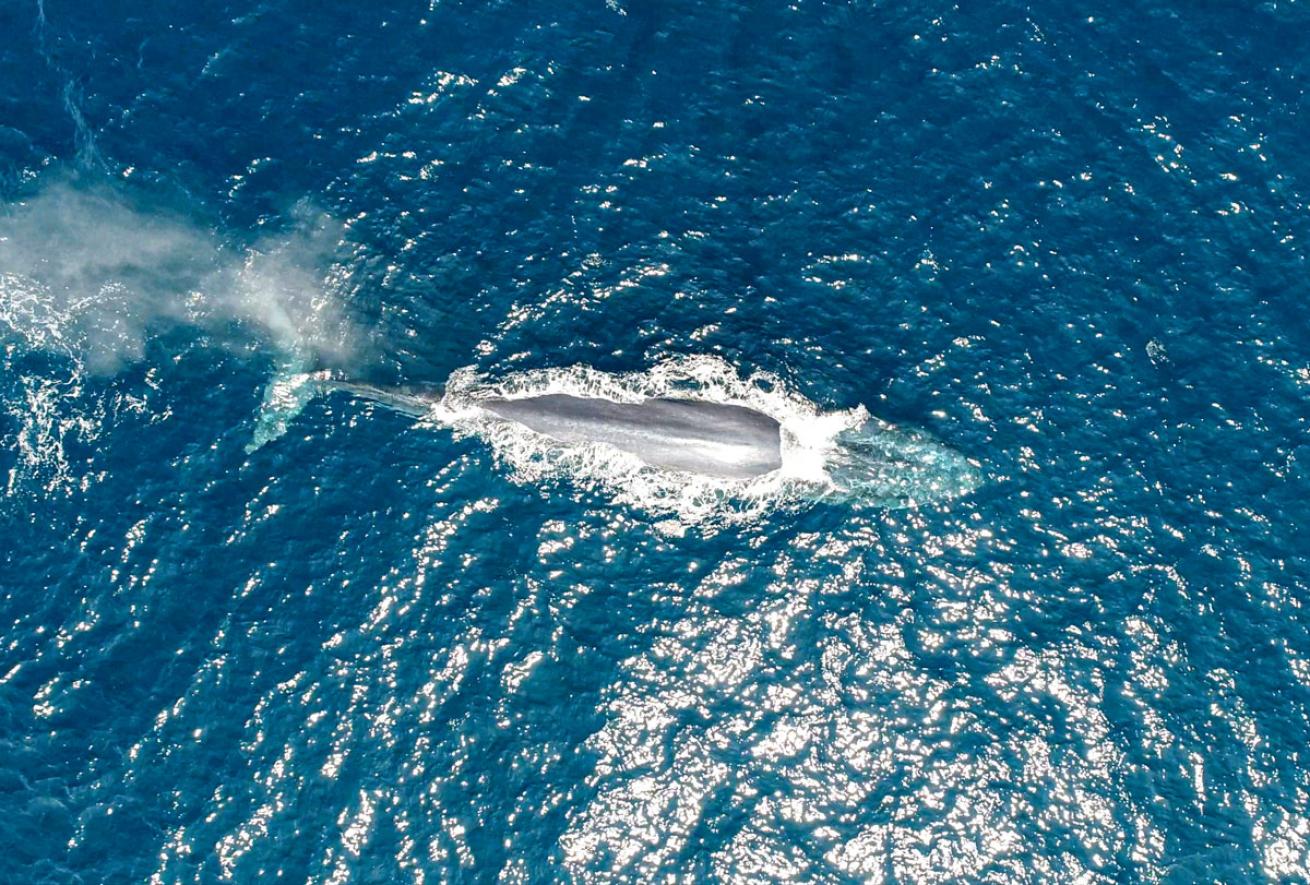
Courtesy Asha de Vos/OceanswellBlue whales are Earth’s largest animals, yet they are rarely seen. “That’s part of their magic, ” de Vos says.
Q: What do you view as the greatest challenges in marine conservation today? How are these challenges reflected in your own work?
A: One of the greatest challenges is that most people have no connection to the ocean. In Sri Lanka, which is a beautiful tropical island in the Indian ocean, the sea has always been seen as a space of extraction—a place where fishermen go to fish—rather than a place of protection or recreation. This is not uncommon in countries in the global south, but it is problematic. If life ends at the shoreline, the oceans become a space of infinite extraction and dumping. As marine conservationists we need to work harder to engage people with these spaces and inspire them to fall in love with the ocean and its inhabitants.
Further, the fact that marine conservation is fairly noninclusive is a problem. This goes back to the colonial science model, and the sense that only those from the developed world have the capacity to do what needs to be done to protect these spaces. We all know this is not true. Since the ocean is 70 percent of our planet, we need to ensure that at least 50 percent of the world population is working for the ocean in some way or form.
Q: What's been your most satisfying moment?
A: At the age of 18, when I told Sri Lankans I wanted to go to university to become a marine biologist, most said, “There is no scope for that career in Sri Lanka so what are you going to do after?” and “So that means you are going to go abroad to study and never return.” I told them I would carve my own niche and that I would return to serve my country. I have to say that, today, as I look back on my journey, I am so grateful that I have managed to stay true to my dreams—I came back and kickstarted a marine conservation movement that has inspired more students than ever to go into marine biology and has gotten more people excited about our oceans. I get the opportunity to nurture the next generation of ocean heroes, and I love knowing that when I die, everything will not end, because that would be a waste of my life.
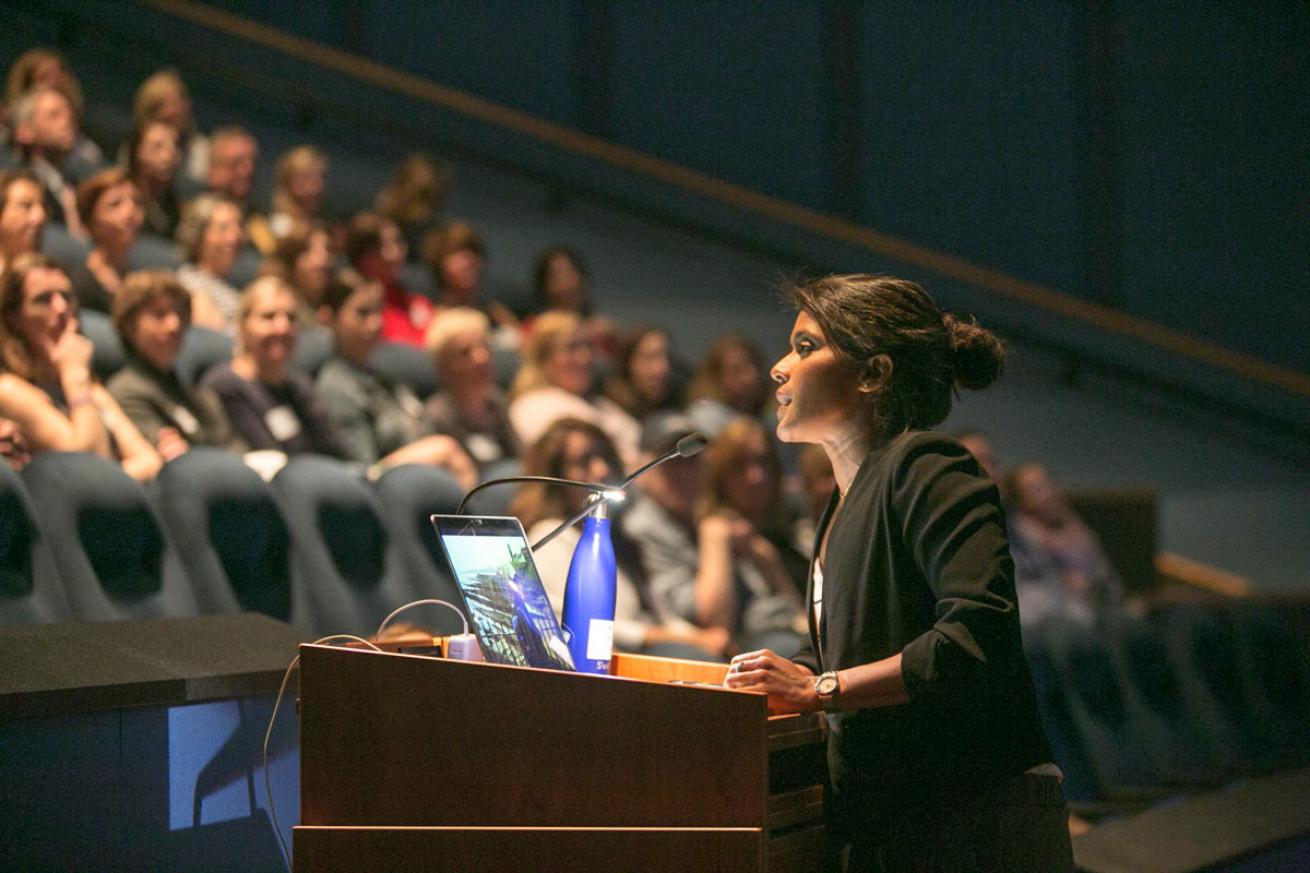
Courtesy Asha de Vos/OceanswellAsha de Vos speaks to a group.
Q: What's been your most surprising moment?
A: I’ve had so many, but certainly in 2018 being named one of BBC’s 100 most inspirational and influential women in the world for my efforts to increase diversity and inclusivity in marine conservation, and also being named Lanka Monthly Digest’s Sri Lankan of the Year that same year. Also, in 2019 learning that I would be the first Sri Lankan woman to have her portrait hung at Oxford University was an incredibly good surprise!
Q: Who are your “sea heroes”?
A: As I always say, if we truly want to save our ocean, every coastline needs a local hero. So my heroes are varied, essentially, everyone who has dedicated their life to driving change for our oceans: all those parents teaching their kids to care for the oceans, the researchers and scientists who dedicate their days to driving change, the storytellers who engage us and help us fall in love, and the ocean-conscious individuals who think about and consider their impact on our oceans every day.
Q: Is there anything we did not ask that you would like readers to know? Tell us what's important to you!
A: As women, we have to work a lot harder to prove ourselves. That’s the uneasy and unfortunate truth, and it definitely has to change. In the meantime, I say strive not to be defined by your gender but by your capability; use your gender to empower others, by letting them see themselves in you. Your strength can become their inspiration. Remember that being inspired is the easy part—doing something with that inspiration is what is most important because if you live your best life, someone else can live theirs.

